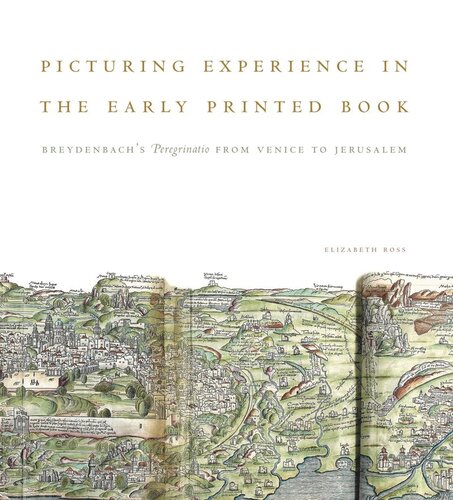

Most ebook files are in PDF format, so you can easily read them using various software such as Foxit Reader or directly on the Google Chrome browser.
Some ebook files are released by publishers in other formats such as .awz, .mobi, .epub, .fb2, etc. You may need to install specific software to read these formats on mobile/PC, such as Calibre.
Please read the tutorial at this link: https://ebookbell.com/faq
We offer FREE conversion to the popular formats you request; however, this may take some time. Therefore, right after payment, please email us, and we will try to provide the service as quickly as possible.
For some exceptional file formats or broken links (if any), please refrain from opening any disputes. Instead, email us first, and we will try to assist within a maximum of 6 hours.
EbookBell Team

0.0
0 reviewsBernhard von Breydenbach’s Peregrinatio in terram sanctam (Journey to the Holy Land), first published in 1486, is one of the seminal books of early printing and is especially renowned for the originality of its woodcuts. In Picturing Experience in the Early Printed Book, Elizabeth Ross considers the Peregrinatio from a variety of perspectives to explain its value for the cultural history of the period. Breydenbach, a high-ranking cleric in Mainz, recruited the painter Erhard Reuwich of Utrecht for a religious and artistic adventure in a political hot spot—a pilgrimage to research the peoples, places, plants, and animals of the Levant. The book they published after their return ambitiously engaged with the potential of the new print medium to give an account of their experience.
The Peregrinatio also aspired to rouse readers to a new crusade against Islam by depicting a contest in the Mediterranean between the Christian bastion of the city of Venice and the region’s Muslim empires. This crusading rhetoric fit neatly with the state of the printing industry in Mainz, which largely subsisted as a tool for bishops’ consolidation of authority, including selling the pope’s plans to combat the Ottoman Empire.
Taking an artist on such an enterprise was unprecedented. Reuwich set a new benchmark for technical achievement with his woodcuts, notably a panorama of Venice that folds out to 1.62 meters in length and a foldout map that stretches from Damascus to Sudan around the first topographically accurate view of Jerusalem. The conception and execution of the Peregrinatio show how and why early printed books constructed new means of visual representation from existing ones—and how the form of a printed book emerged out of the interaction of eyewitness experience and medieval scholarship, real travel and spiritual pilgrimage, curiosity and fixed belief, texts and images.